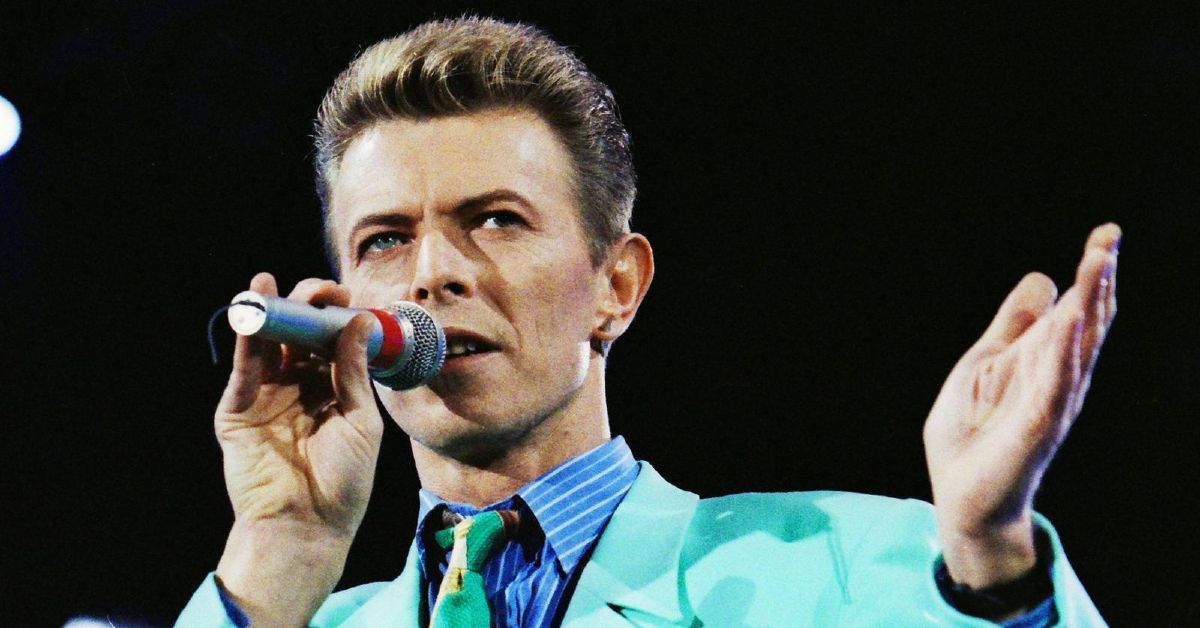Highlights
- David Bowie’s controversial persona, “The Thin White Duke,” caused outrage in the mid-1970s and his offensive statements.
- Bowie praised fascism in a 1976 Playboy Magazine interview, sparking widespread criticism.
- Bowie later recanted his comments, blaming drug use and stating that his fascination with fascism was derived from a general interest in mythology.
David Bowie is one of the most revered rock stars of all time. He is a musician who constantly pushed boundaries, and influenced future generations to do the same. By the time of his death in 2016, Bowie had a near flawless reputation. In the years since his death, however, some of his more controversial statements have come to light.
Bowie was known for experimenting with different personas and characters throughout his career, and none proved more polarizing than “The Thin White Duke”, the persona he took on in the mid-1970s. He gave an interview to Playboy Magazine during this period, and made the kind of offensive statements that would have certainly gotten him canceled in the modern day.
David Bowie Praised Fascism And Called Hitler A ‘Rock Star’ During His 1976 Playboy Interview
David Bowie fashioned the persona of “The Thin White Duke” during the making of his album Young Americans (1975). The musician ditched his glam-rock wardrobe and started wearing suits, while his constantly-changing hair was bleached blond. He described “The Thin White Duke” to author Peter Doggett as a “very Aryan, fascist type.” He utilized the persona a few times over the years, primarily on the projects:
- The Man Who Fell To Earth (1975) [film]
- Station To Station (1976) [album]
- “Lazurus” (2016) [single]
Bowie described “The Thin White Duke” to author Peter Doggett as a “very Aryan, fascist type”, and he certainly delivered on the Aryan angle when he gave an interview to Playboy Magazine in 1976. He claimed to be a supporter of fascism, and he held Nazi leader Adolf Hitler in very high regard:
“I believe very strongly in fascism… I can’t stand people just hanging about. Television is the most successful fascist, needless to say. Rock stars are fascists, too. Adolf Hitler was one of the first rock stars.”
These were not the only pro-Hitler comments that Bowie made during the 1970s. During a Rolling Stone profile released the same year as the Playboy interview, Bowie said he could have been “Hitler in England” and that he would be an “excellent dictator, very eccentric and quite mad.”
The NME published an infamous photo of Bowie giving what appeared to be a Nazi salute before an April 1976 concert in London, though the true intention of his actions remains up for debate. Given his pro-fascist statements, however, many believed the outlet’s headline, which read: “Heil And Farewell”.

Did Mick Jagger And David Bowie Really Hook Up? The Truth About Their Rumored Affair
Rolling Stones frontman Mick Jagger was rumored to have secretly had an affair with David Bowie, but is it even remotely true?
David Bowie retired “The Thin White Duke” in the 1980s, and adopted a more accessible persona for the rest of his career, but the Playboy interview resurfaced shortly after his death in 2016, and many young fans were horrified to discover what he had said.
It was not the first time Bowie had been made to answer for his comments, however, as he owned up to and apologized for his fascist rhetoric several times during the 1980s and 90s.
David Bowie drew widespread criticism for his public support of fascism during the 1970s, and the musician later admitted to being in a dark place. In the biography Strange Fascination, he admitted that “The Thin White Duke” represented the “darkest days” of his life, and that he was regularly consuming cocaine and methamphetamines while touring.
David Bowie explained his fascination with fascism and Adolf Hitler, in particular, during a 1980 interview with NME. He said it derived from a general interest in mythology, and felt that it was the perfect subject to match with “The Thin White Duke” from an aesthetic standpoint:
“That whole Station To Station tour was done under duress. I was out of my mind totally, completely crazed. But the main thing I was functioning on was – as far as that whole thing about Hitler and rightism was concerned – it was mythology… about the Arthurian period, about the magical side of the whole Nazi campaign, and about the mythology involved.”
Bowie later admitted regret over the decision, and clarified that he did not support any of the Nazi party’s actions during World War II.

David Bowie Took Years To Recover From His Worst Album
Never Let Me Down was a disaster for David Bowie, and he regretted the album.
He told the outlet that he worked with several African American musicians during the “Thin White Duke” period, and admits to being callous when it came to his casual idolatry of Hitler:
“The idea that it was about putting Jews in concentration camps and the complete oppression of different races completely evaded my extraordinary f**ked-up nature at that particular time.”
David Bowie would go on to voice regret about his Playboy Magazine comments in several other publications, including:
- Melody Maker, 1977
- NME Magazine, 1993
- Uncut Magazine, 2002
The Times of Israel reported that Bowie put on a concert at Israel’s Park Hayarkon in 1996, affirming to many that he did not mean the things he said two decades prior.
David Bowie’s Friends Have Continued To Defend His Legacy After His Death
David Bowie dusted off “The Thin White Duke” persona for his final album, Black Star. He appeared in the music video of the album’s second single, “Lazarus.” The video, according to fan theories, depicts the Duke at the end of his life, having been stripped of his humanity, which supports the musician’s retrospective opinion of him as a “nasty character.”
The Playboy interview has continued to circulate on social media, with new generations of Bowie fans being understandably shocked by what he agreed to say on the record, but the musician’s friends and biographers have continued to defend his legacy in the media.
Andrew Kent, who spent months photographing Bowie during his “Thin White Duke” era, told Uncut Magazine that he did not take the musician’s inflammatory comments seriously:
“I never felt David was a Nazi sympathizer. I’m Jewish, so if anybody would be sensitive to that and have bad feelings… I just think it was what I’d call an adolescent attraction.”

What Is David Bowie’s Daughter Alexandria Zahra Jones Doing Now?
Alexandria Zahra Jones is no longer living life out of the spotlight and is taking after her dad, David Bowie’s artistic prowess.
Simon Critchley, who wrote the 2016 biography Bowie, told Politico that the musician was in the midst of a difficult period in his life and made statements that he didn’t fully understand:
“He wasn’t a Nazi. It was misunderstood. I think there is a nostalgic nationalism in Bowie—a sort of nostalgia for the utopian idea of Englishness, of Milton or Blake or Shelley. I think he confused fascism with nationalism.”
David Bowie spent his career provoking responses out of the public, and there’s no denying that his time as “The Thin White Duke” was the most provocative (and offensive). The fact that the musician recanted his statements, however, has made it easier for fans to forgive him.
Source: NewsFinale

